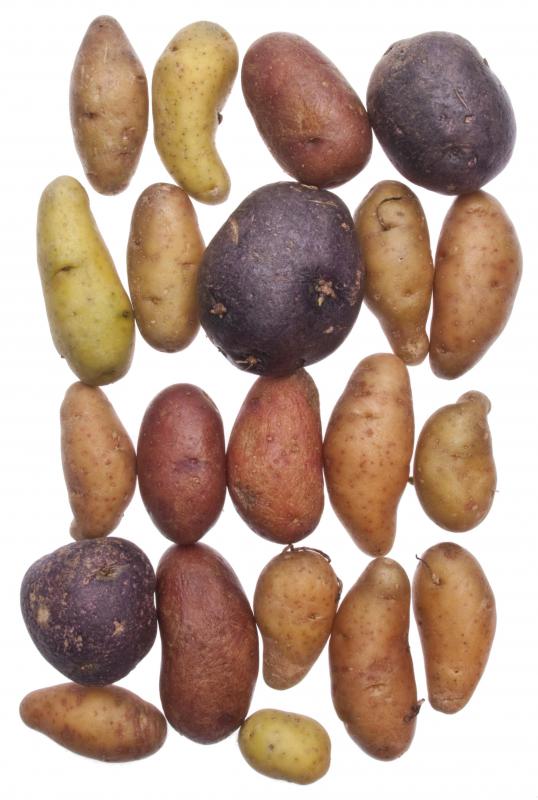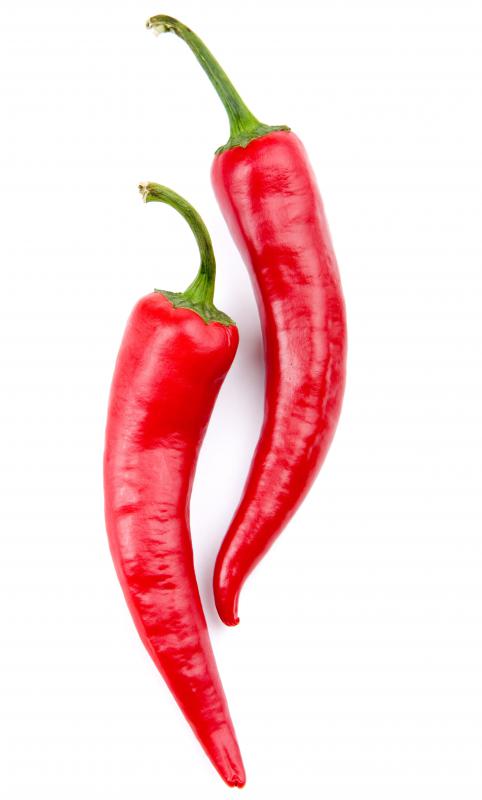At DelightedCooking, we're committed to delivering accurate, trustworthy information. Our expert-authored content is rigorously fact-checked and sourced from credible authorities. Discover how we uphold the highest standards in providing you with reliable knowledge.
What Are Nightshade Vegetables?
Nightshade vegetables are plant foods that grow at night instead of during the day, such as potatoes and tomatoes. They offer the body a variety of vitamins and minerals but can also cause pain in certain individuals. These foods may also aggravate pre-existing conditions, such as osteoarthritis and fibromyalgia. This effect is caused by chemicals the vegetables produce, which are referred to as alkaloids.
Part of a family of plants called Solanaceae, these plant foods include eggplants, tomatoes, potatoes, tomatillos, and most types of peppers. Although many people do not consider foods like tomatoes and potatoes vegetables, experts typically include them in the nightshade vegetable category. Vegetables classified as nightshades contain ample amounts of vitamin C and A as well as other essential nutrients. For example, just one cup (128 grams) of green peppers has over 100 percent of a person's daily requirement of vitamin C. Likewise, one large potato contains around 30 percent of the average individual's daily requirement of fiber.

Vegetables from the Solanaceae family produce alkaloids to ward off insects and prevent them from eating the plant. Humans can be sensitive to them as well, but many people consume nightshade vegetables without noticing any adverse effects. Others, however, experience pain in their nerves, joints, and muscles as a result of consuming these plants. This plant family also has many species that are considered toxic to humans, including tobacco and deadly nightshade, which produces small, poisonous berries. The toxicity of the plants in this family varies greatly, as deadly nightshade is extremely poisonous while tomatoes only trigger pain in people who are especially sensitive to alkaloids.

Nicotine is an example of the chemicals produced by nightshade plants. Nightshades like potatoes have low concentrations of this alkaloid while tobacco has more of it. Found in chili peppers, capsaicin is another plant alkaloid and is responsible for the tongue burning one feels while eating these peppers. The concentration of alkaloids in nightshade vegetables can be reduced by cooking, but some people are sensitive to them even after food has been cooked.

Nightshade plants may worsen the symptoms of arthritis, a condition that causes pain, swelling, and stiffness of the joints. There are many types of arthritis, but a degenerative joint condition called osteoarthritis is a common example of one associated with nightshade sensitivity. People who have osteoarthritis may do well to eliminate nightshade vegetables from their diets altogether, as these plants can worsen their already painful joint inflammation.

A syndrome called fibromyalgia, which is related to arthritis, can also worsen after consumption of these vegetables. This condition is marked by chronic pain in the muscles and joints as well as extreme and constant tiredness. Some individuals suffering from this illness notice that their fibromyalgia symptoms seem to improve when they eliminate nightshade vegetables from their diets. As such, experts often advise a person who suspects he is sensitive to nightshades to eliminate them from his diet in an effort to pinpoint any difference in his symptoms.
AS FEATURED ON:
AS FEATURED ON:















Discussion Comments
First off, nightshades growing at night is an old wives' tale. If it were true, our tomatoes would not need sunlight to grow and I don't know about you but every tomato I have ever grown had to have sunlight, and lots of it, as did my peppers and other nightshade plants.
Secondly, Fibromyalgia is not related to arthritis. Research shows that it is a symptom of MS [Multiple Sclerosis]! Do your homework!
Post your comments